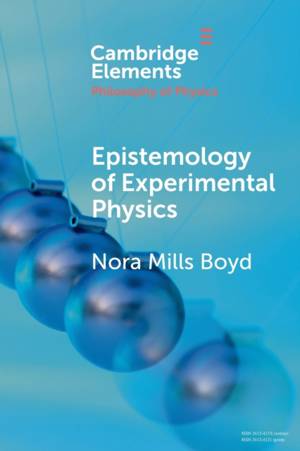
- Afhalen na 1 uur in een winkel met voorraad
- Gratis thuislevering in België vanaf € 30
- Ruim aanbod met 7 miljoen producten
- Afhalen na 1 uur in een winkel met voorraad
- Gratis thuislevering in België vanaf € 30
- Ruim aanbod met 7 miljoen producten
Zoeken
Omschrijving
This Element introduces major issues in the epistemology of experimental physics through discussion of canonical physics experiments and some that have not yet received much philosophical attention. The primary challenge is to make sense of how physicists justify crucial decisions made in the course of empirical research. Judging a result as epistemically significant or as calling for further technical scrutiny of the equipment is one important context of such decisions. Judging whether the instrument has been calibrated, and which data should be included in the analysis are others. To what extent is it possible to offer philosophical analysis, systematization, and prescriptions regarding such decisions? To what extent can there be explicit epistemic justification for them? The primary aim of this Element is to show how a nuanced understanding of science in practice informs an epistemology of experimental physics that avoids strong social constructivism.
Specificaties
Betrokkenen
- Auteur(s):
- Uitgeverij:
Inhoud
- Aantal bladzijden:
- 75
- Taal:
- Engels
- Reeks:
Eigenschappen
- Productcode (EAN):
- 9781108794510
- Verschijningsdatum:
- 2/12/2021
- Uitvoering:
- Paperback
- Formaat:
- Trade paperback (VS)
- Afmetingen:
- 152 mm x 229 mm
- Gewicht:
- 113 g

Alleen bij Standaard Boekhandel
+ 63 punten op je klantenkaart van Standaard Boekhandel
Beoordelingen
We publiceren alleen reviews die voldoen aan de voorwaarden voor reviews. Bekijk onze voorwaarden voor reviews.











